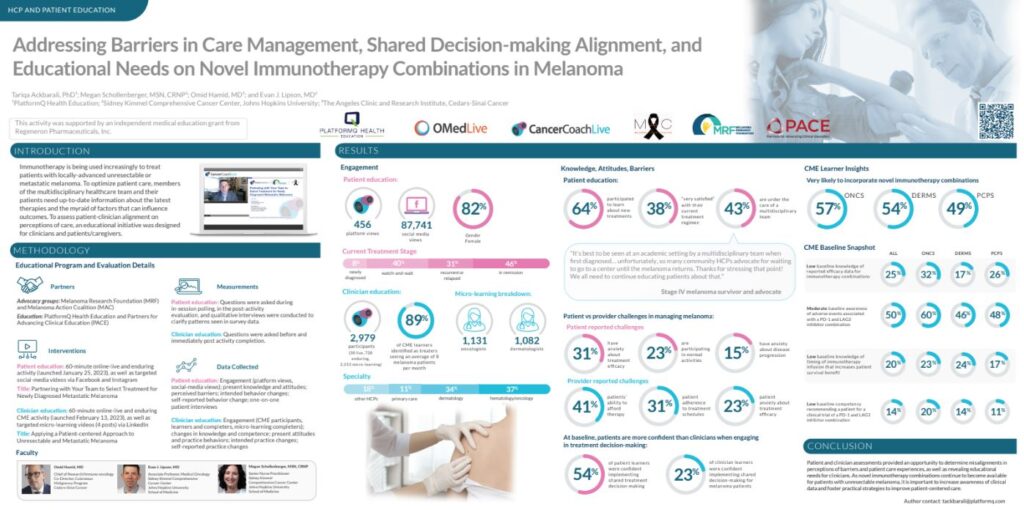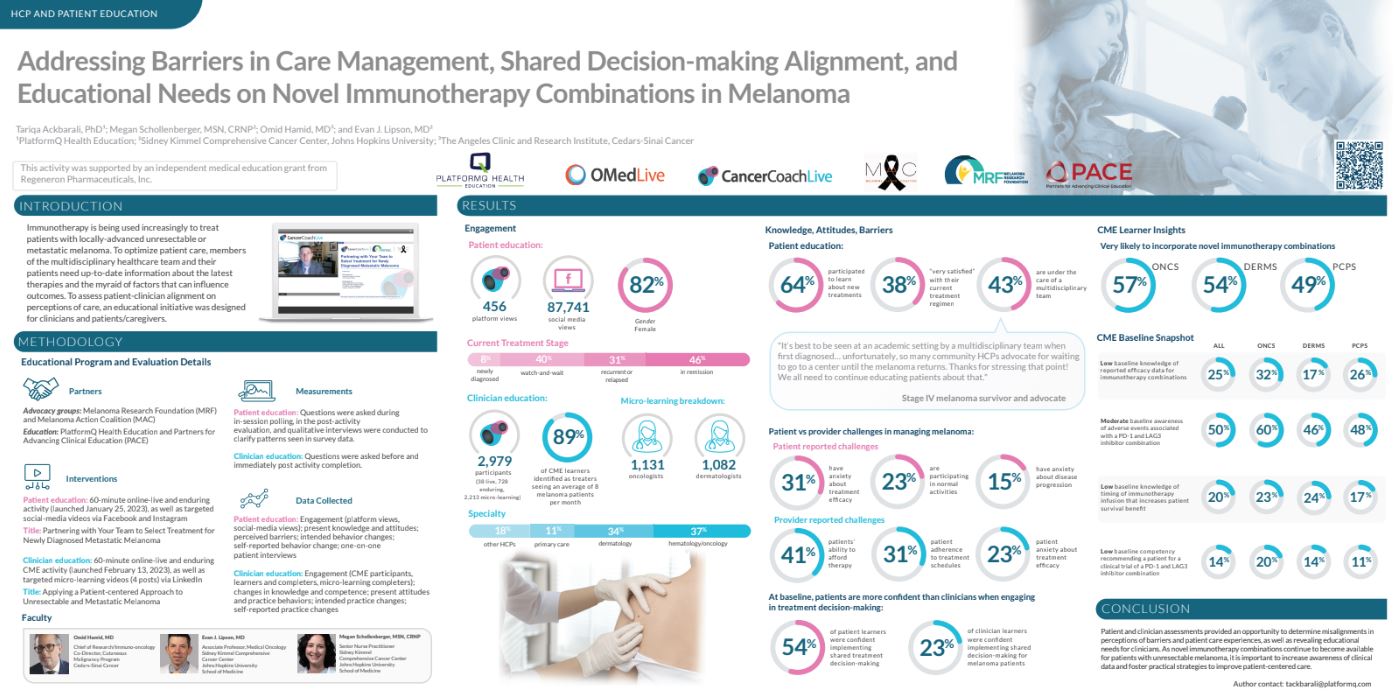Immunotherapy is increasingly being used to treat patients with melanoma and other types of cancer. Management of these therapies differs distinctly from previous standard-of-care options such as chemotherapy. Optimizing care involves educating a multidisciplinary healthcare team about therapy management as well as educating patients about therapies and the factors that can influence outcomes.
To that end, PlatformQ Health, the Melanoma Action Coalition, and Melanoma Research Foundation produced an educational program featuring faculty from Johns Hopkins University and Cedars-Sinai Cancer Center. One of the goals was to align patients/caregivers and healthcare providers in terms of perceptions of care.
The program outcomes were presented at a poster at the 2023 ASCO Quality Care Symposium.
Click here to download the full poster.
Patient education included 87,741 social media views. Of the patient learners, 8% were newly diagnosed and 31% had recurrent disease. The tethered patient/provider program uncovered gaps between the understanding that patients and providers have about key issues, such as anxiety about treatment efficacy, treatment affordability, and concerns about disease progression. Inherently, at baseline, more patient learners were confident implementing shared treatment decision-making than clinicians.
Prior to the CME session, learners reported low baseline knowledge on several subjects, such as efficacy of immunotherapy combinations and adverse events associated with treatment. After the session, 57% of participating oncologists and 54% of dermatologists reported that they were very likely to incorporate novel immunotherapy combinations into patients’ treatment regimens.
As the prevalence of these treatments increases, so does the need for education across providers, patients, and caregivers.




